The Zinn Education Project mourns the passing of Daniel Ellsberg, who died last week of pancreatic cancer at the age of 92. Ellsberg’s most famous act — copying and releasing the secret Pentagon Papers history of the war in Vietnam — earned him National Security Advisor Henry Kissinger’s label, “the most dangerous man in America.”
When Ellsberg surrendered to federal authorities in June of 1971, he faced 115 years in prison. Reporters asked him about the extraordinary risk he took by exposing U.S. lying about the war. Ellsberg said simply, “Wouldn’t you go to jail to help end the war?”
Dan Ellsberg was brilliant, courageous, kind, indefatigable — a social justice activist for more than 50 years. His death represents an enormous loss.
But his life offers educators and students magnificent lessons. It is why the Zinn Education Project agreed in 2010 to produce the teaching guide to supplement The Most Dangerous Man in America: Daniel Ellsberg and the Pentagon Papers, the excellent film about Ellsberg’s life. As we wrote in the introduction to the teaching guide:
Where some students may never have the opportunity to affect the course of history like Daniel Ellsberg, all will be in positions to make important decisions in the name of justice.
History is not the lifeless narration found in most standard textbooks, but a series of choices made on a daily basis by people from all walks of life. We offer The Most Dangerous Man in America Teaching Guide as a curriculum of empowerment for young people trying to come to terms with a world that often feels out of their control. Daniel Ellsberg’s life story offers a poignant example of profound change and hopeful action in the face of a seemingly immovable power.
As teachers, our aim should be to involve young people in the democratic practice of seeking truth, of demanding evidence, of digging deep for knowledge that is often hidden, in order to make informed, just choices. Daniel Ellsberg’s actions along with the actions of so many others have kept a tradition of truth-telling alive. We want to ensure that this tradition gets passed on to our students.
In the film, Ellsberg quotes Henry David Thoreau, who implored: “Cast your whole vote, not a strip of paper merely, but your whole influence.” Ellsberg lived by Thoreau’s words; as he said: “We as a people do have that power . . . to change ourselves and history.”
Ellsberg’s life was one of conscience, activism, and, yes, courage. We all should draw inspiration from him. When it comes specifically to our teaching about the Vietnam War, teachers need to return to Ellsberg to be reminded that, as he said in the film Hearts and Minds: “It wasn’t that we were on the wrong side; we were the wrong side.”
Ellsberg’s troubling insight about the war should be at the heart of our teaching:
Truman lied . . . Eisenhower lied . . . Kennedy lied . . . Johnson lied and lied and lied . . . Nixon lied . . . The American public was lied to month by month by each of these five administrations. As I say, it’s a tribute to the American public that their leaders perceived that they had to be lied to. It’s no tribute that it was so easy to fool the public.
Our teaching about the war in Vietnam — and our entire curriculum — should equip students with the knowledge and critical sensibilities to prevent them from becoming the gullible propaganda victims that Ellsberg describes. As we know, this is precisely the kind of teaching that today’s right wing seeks to suppress and outlaw.
It should be added that Ellsberg’s act of conscience and defiance in releasing the Pentagon Papers was itself inspired by others’ courage and commitment. As Ellsberg said in an interview on NPR’s Fresh Air in 2018:
Without young men going to prison for nonviolent protests against the draft, men that I met on their way to prison, [there would have been] no Pentagon Papers. It wouldn’t have occurred to me simply to do something that would put myself in prison for the rest of my life, as I assumed that would do.
And of course, these resisters, themselves, drew inspiration from previous movements for peace and justice — abolitionists, suffragists, radical labor organizers, Black Freedom Struggle activists.
As the 2022–2023 school year draws to a close, we urge you to spend some time reviewing the life of Daniel Ellsberg. His life offers evidence that people make history, that nothing is inevitable. Every step toward a more peaceful and just society is because people take risks and organize for a better world.
This tribute from Democracy Now! features Daniel Ellsberg in his own voice from various interviews.

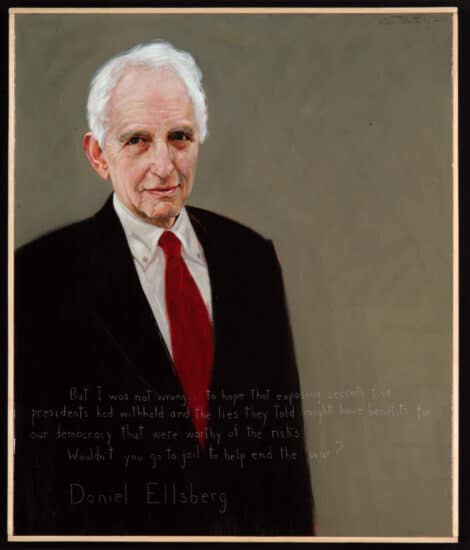
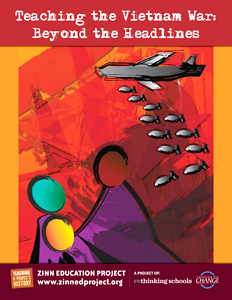
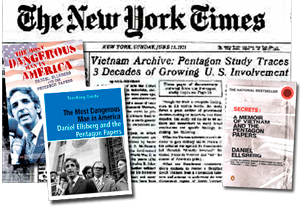
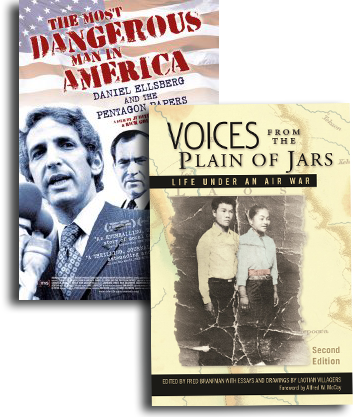
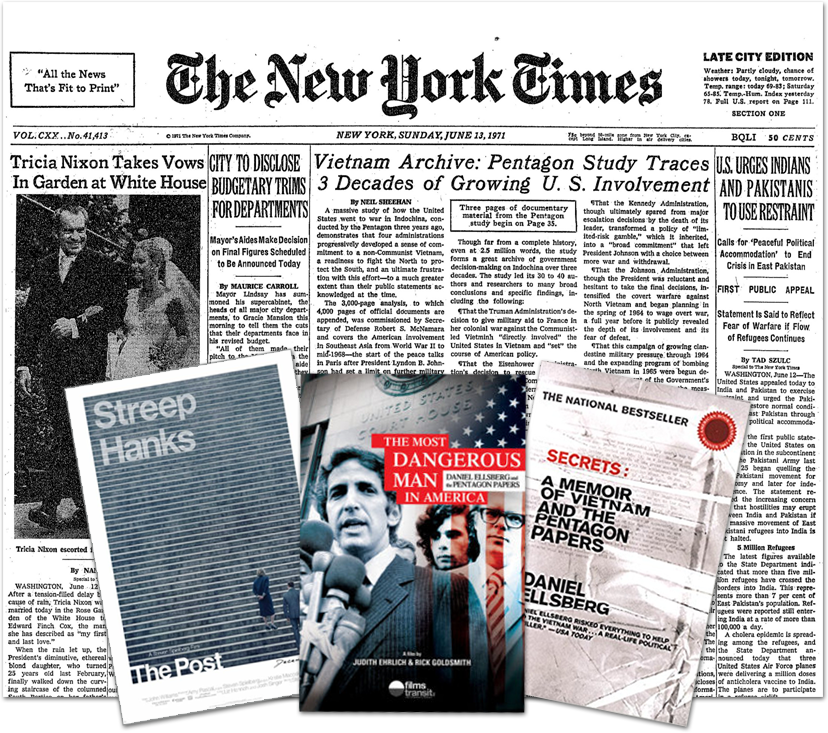
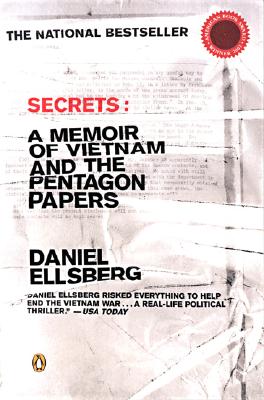
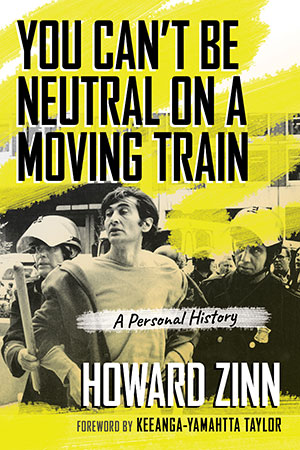
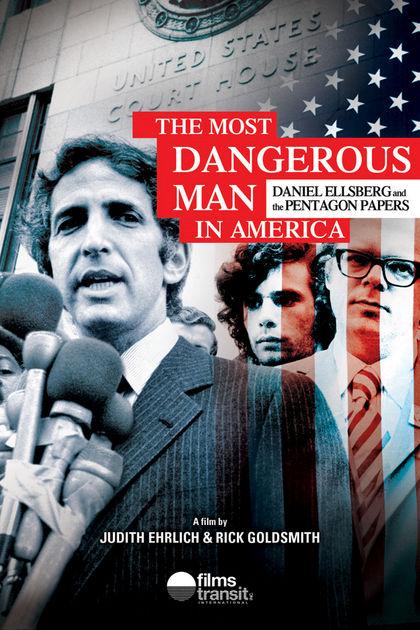
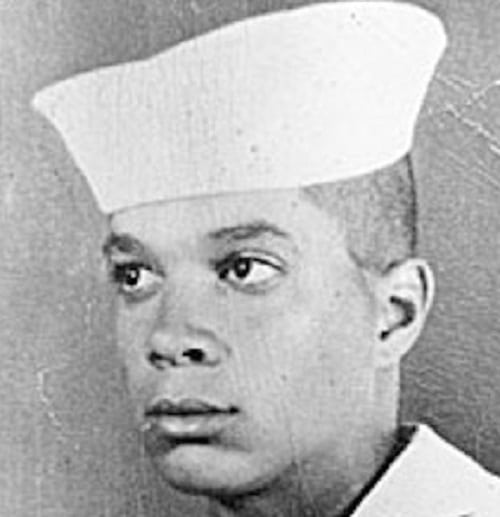
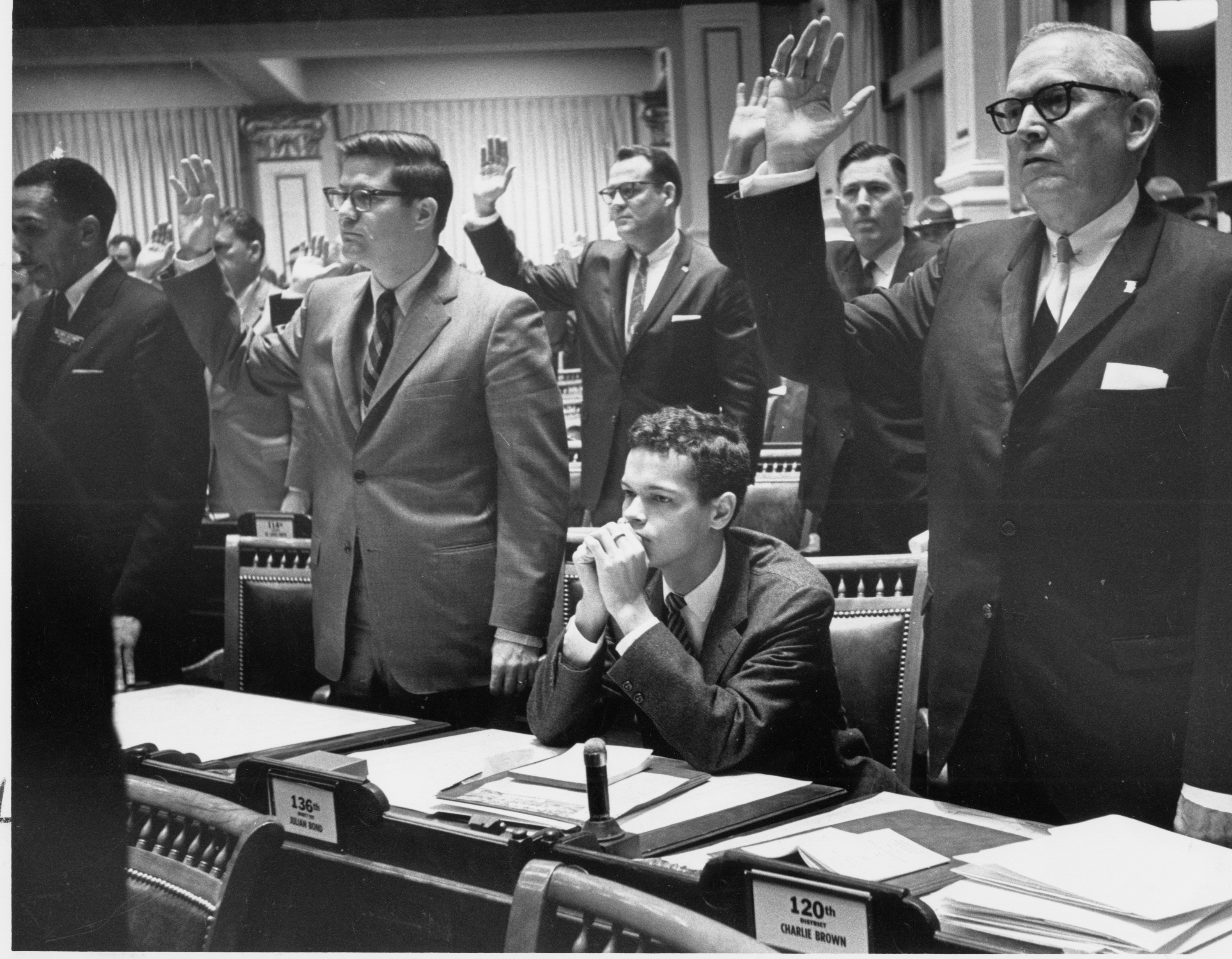
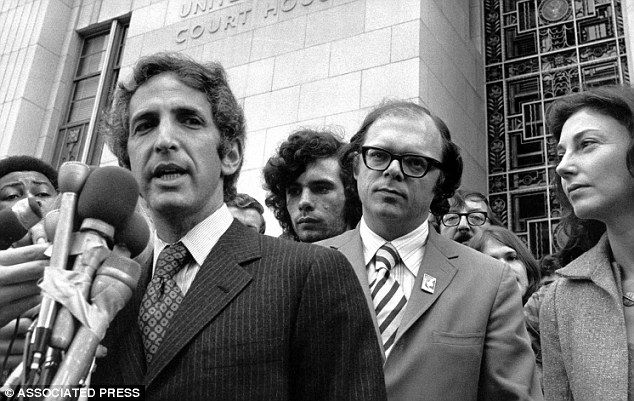
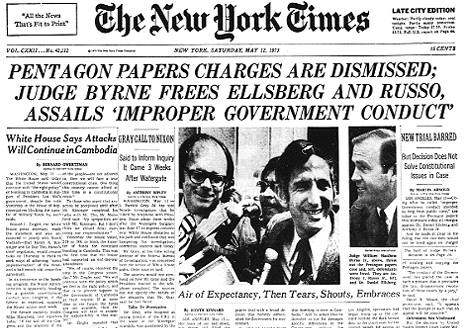





Twitter
Google plus
LinkedIn